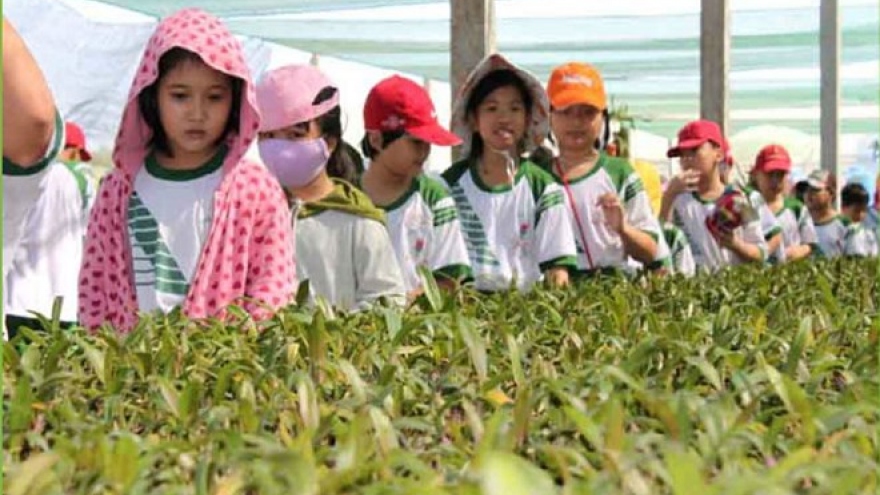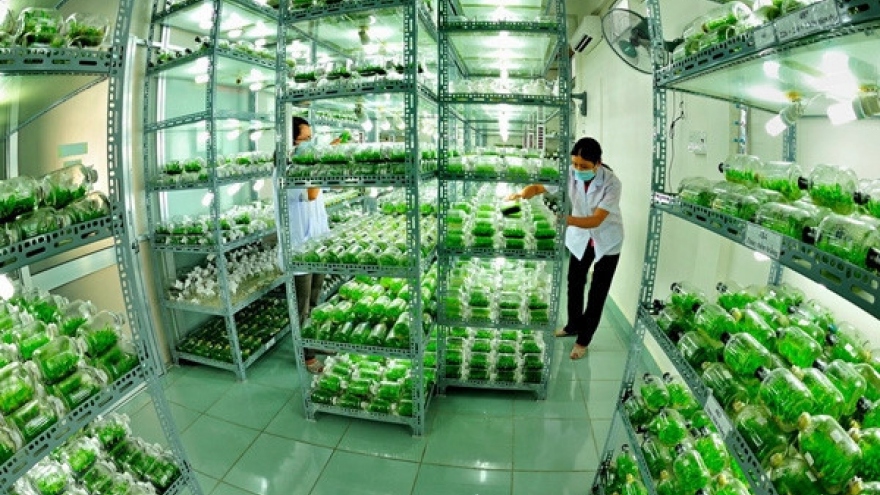Sustainable agriculture development in ASEAN integration
VOV.VN - Improving the quality of agricultural products, ensuring farmers’ interests, and sustainably developing agriculture in ASEAN topped the agenda of a just- concluded international conference in Hanoi.
 |
Global economic integration and ASEAN economic integration have brought benefits, opportunities, and challenges for Vietnam’s agriculture and that of other ASEAN members.
Conference participants discussed a number of issues related to the sustainable development of agriculture: the role of science and technology in the growth of commodity-based agriculture, relations between businesses and farmers, promoting Myanmar agricultural competitiveness during ASEAN integration, the impact of joining the ASEAN Economic Community on Vietnam’s agriculture sector, farming modes, and green and environmentally-friendly agriculture.
In ASEAN, Thailand is considered the leader in applying science and technology in the agriculture sector. The Thai Board of Investment has approved the granting of special promotional privileges for investment in projects related to modern agricultural production and services.
Farmers are encouraged to upgrade their production methods and crop quality to achieve sought-after international quality standards, such as Good Agricultural Practice and ISO 22000 Food Safety Management Systems Certification.
Under the new privilege structure, businesses that apply technology to help modernize production in the farming sector will be entitled to a corporate income tax exemption for five years.
About 70% of Vietnam’s population are farmers and agriculture remains an important sector, contributing 20% of the GDP.
Le Quoc Doanh, Deputy Minister of Agriculture and Rural Development, said Vietnam has promulgated initiatives to address pending issues relating to sustainable agriculture development. Under the programs, Vietnam will restructure its agriculture to obtain greater added values and sustainable development.
Vietnam will also develop key products in combination with the application of science and technology to increase productivity, expand information systems, enhance market forecasting, and trade promotion, encourage investment in agriculture, and mitigate climate change effects.




